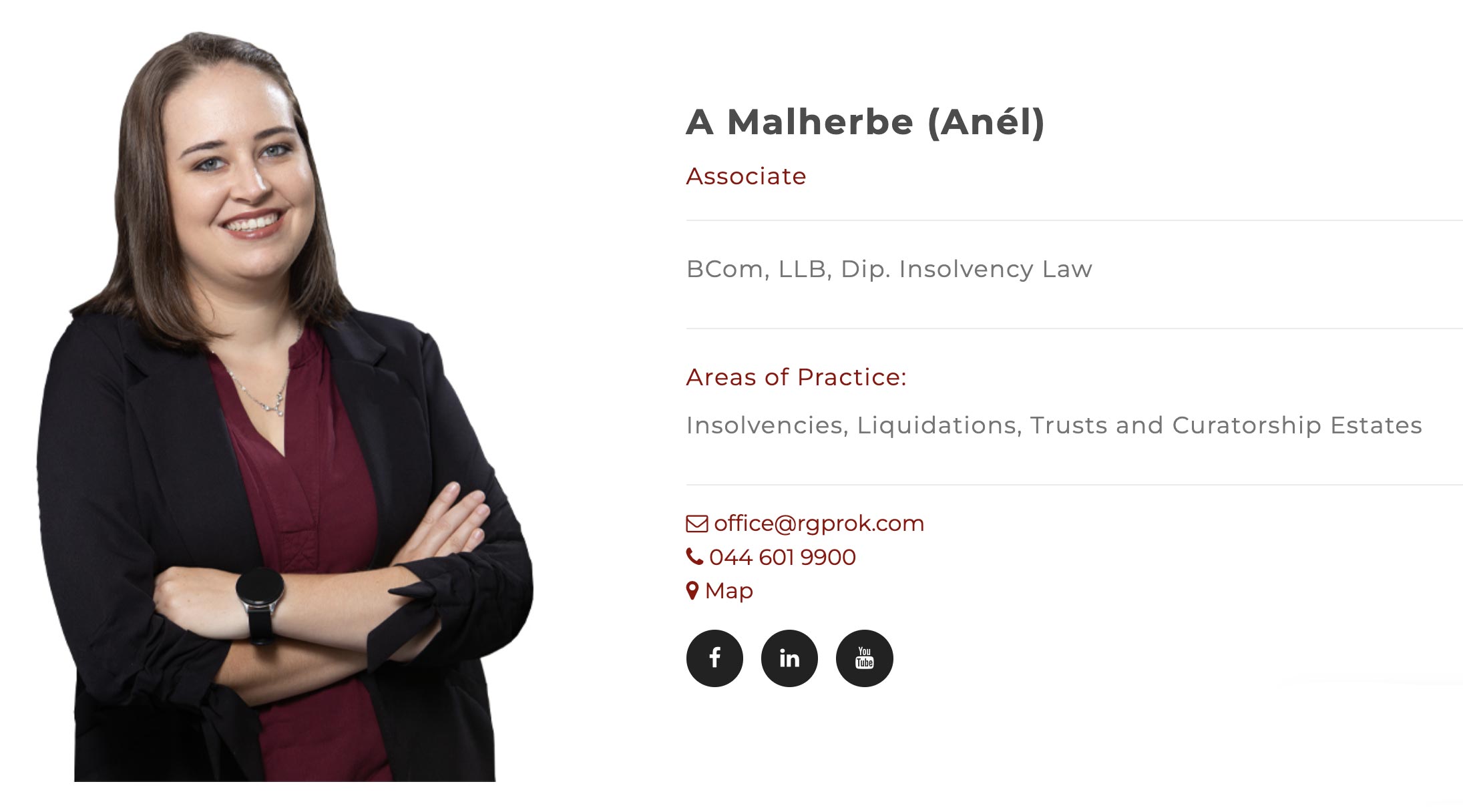My family member has been diagnosed with Alzheimer’s/Dementia, what now?
Administrator appointment in terms of Section 60 of the Mental Health Care Act
Alzheimer’s and Dementia are two of the most feared illnesses and are on the increase worldwide. It has numerous consequences, especially when it comes to the assets of the affected person, since the person, when diagnosed with Alzheimer’s or Dementia, will no longer be capable of managing his/her own affairs. To assist such a person an Administrator is appointed to take control of his/her assets.
The application for the appointment of an Administrator is lodged directly with the Master of the High Court and the Court is therefore excluded in this process. This is a much cheaper and quicker procedure than to wait for a court date, in the case where Curator Bonis route is followed. A Curator Bonis may be used for a person who is either mentally or physically incapacitated, while an Administrator may only be appointed where the person is mentally incapacitated.
The application for the appointment of an Administrator is done in terms of Section 60(1) of the Mental Health Care Act and it is preferable that a next of kin is the applicant. Should the applicant not be the next of kin or the spouse of the person, the steps that has been followed to determine the whereabouts of the next of kin of the person should be set out in the application.
The Master has 30 days after receipt of the application to confirm whether an investigation must be launched to confirm the merits of the application. This is only applicable in the following instances:
- When certain allegations must be confirmed in the application;
- When further information is needed in support of the application; or
- The asset value of the person is more than R200 000 and the annual income is more than R24 000.
The investigation must be conducted by a qualified person, for example a social worker.
The investigator has 60 days to finalise the investigation and to lodge the report with the Master after which the Master has 14 days to do the following:
- Appoint the nominated Administrator;
- Decline the appointment of the nominated Administrator;
- Refer the matter to a Judge in Chambers to consider the application and to make a decision.
After an Administrator has been appointed, the Administrator takes complete control of the assets of the affected person. This includes, but is not limited to, the collecting of the income due and payable to the person as well as the payment of the monthly expenses of the person under the supervision of and with the permission of the Master.
On an annual basis the Administrator is under obligation to lodge an account with the Master in which the Administrator indicates the income and expenses as well as the assets and liabilities of the person for that period.
Legislation prescribes the fee that an Administrator is entitled to.
Article by Anél Malherbe, BCom, LLB, Dip. Insolvency Law (Associate)
For more information, kindly contact Anél at acloete@rgprok.com or 044 601 9900. www.rgprok.co.za
___
Disclaimer
Nothing contained in this publication is to be considered as the rendering of legal advice for specific cases, and readers are responsible for obtaining such advice from their own legal counsel. This publication is intended for educational and informational purposes only.








